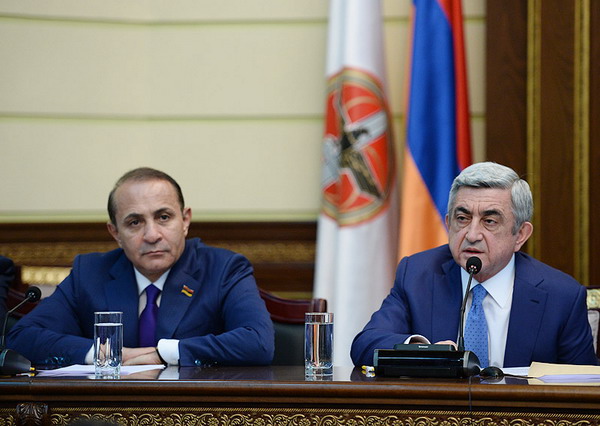Over 20 years of independent Armenia’s history, the opposition figures, and commentators are always talking about the “regime” by putting the name and last name of the person currently occupying the president’s chair next to the noun. It is intended that removal of the person from the power embodying the regime would bring the regime, i.e., a change in the political system.
Generally, the term “regime” in publicity is usually used in a negative sense. As far as I know, nobody says “Obama Regime” or “Oland mode”, probably because the state power in those countries is exercised by the will of citizens rather than by the will of the mentioned people. Therefore, we can say “Putin regime”, “Lukashenko regime”, “Nazarbayev regime”, and so on. Though the citizens of Belarus and Kazakhstan, who will publicly pronounce relevant phrases, can have problems.
The word “regime”, thus, is usually not applied to democratic countries, however, it is totally applicable to a totalitarian or authoritarian systems. Armenia, as it is known, is the second case. The lack of free elections, in particular, is one of the major features of authoritarian regime, which results in a lot of negative consequences, including merely political competition, lack of ideological struggle, parties failed condition, etc.
Authoritarian regimes also vary. In 1993, after the establishment of “Yerkrapah voluntary union” (“PANM’s military wing”), our authoritarianism more tended to military-bureaucratic kind. In 2000 and onwards, elements of autocracy were highlighted in Armenia’s authoritarian regime. And ultimately, since the spring of 2011, and especially after the appointment of Hovik Abrahamyan, we have what the experts call a “corporatist authoritarianism,” in which there is a fairly advanced economic and social pluralism, and where the elite agrees on corporate representation. Such regimes in their diversity are presented in Latin American countries.
Read also
The regime in Armenia was always authoritarian. To attributed its “copyright” to any president, of course, is possible, but it is a purely within the political struggle. In fact, it is interesting that the supporters of people standing at the head of the preceding authoritarian regime are voicing “regime” blames addressed to the successors. 20 years ago, it seemed to me that under such regime conditions it is possible to achieve economic modernization and high indicators, with the example of Singapore or South Korea. But, since the situation has been already extended two decades, it becomes obvious that the political regime in Armenia hinders the economic development. Therefore, there is a need for purely pragmatic that Armenia should become a democratic country.
How? At least two political forces argue that this problem can be solved by dismissal of Serzh Sargsyan from power. They, certainly, are not naive enough to believe their own allegations. In particular, they know very well that current it is not possible to hold free elections in Armenia, and those who would hold the administrative levers and money in their hands at the time of resignation, would fabricate the elections for their benefit. However, people’s heads contain fixed ideas (idée fixe), which are difficult to abandon. In addition, the 20-year political tradition claims: if you are not fighting for Serzh Sargsyan’s (Levon Ter-Petrosyan’s, Robert Kocharyan’s) resignation, then you… (here you can add any bad word), you want everything to stay the same and… (here you can add any bad phenomenon that is available in Armenia).
But, if this “traditional” position is correct, then a new analysis on political sciences can be put down, according to which, the opposition should cooperate with the Republican Party to overthrow Serzh Sargsyan’s regime through Hovik Abrahamyan. Only it is not clear whether it refers to Serzh Sargsyan, or the regime.
Aram ABRAHAMYAN



























































